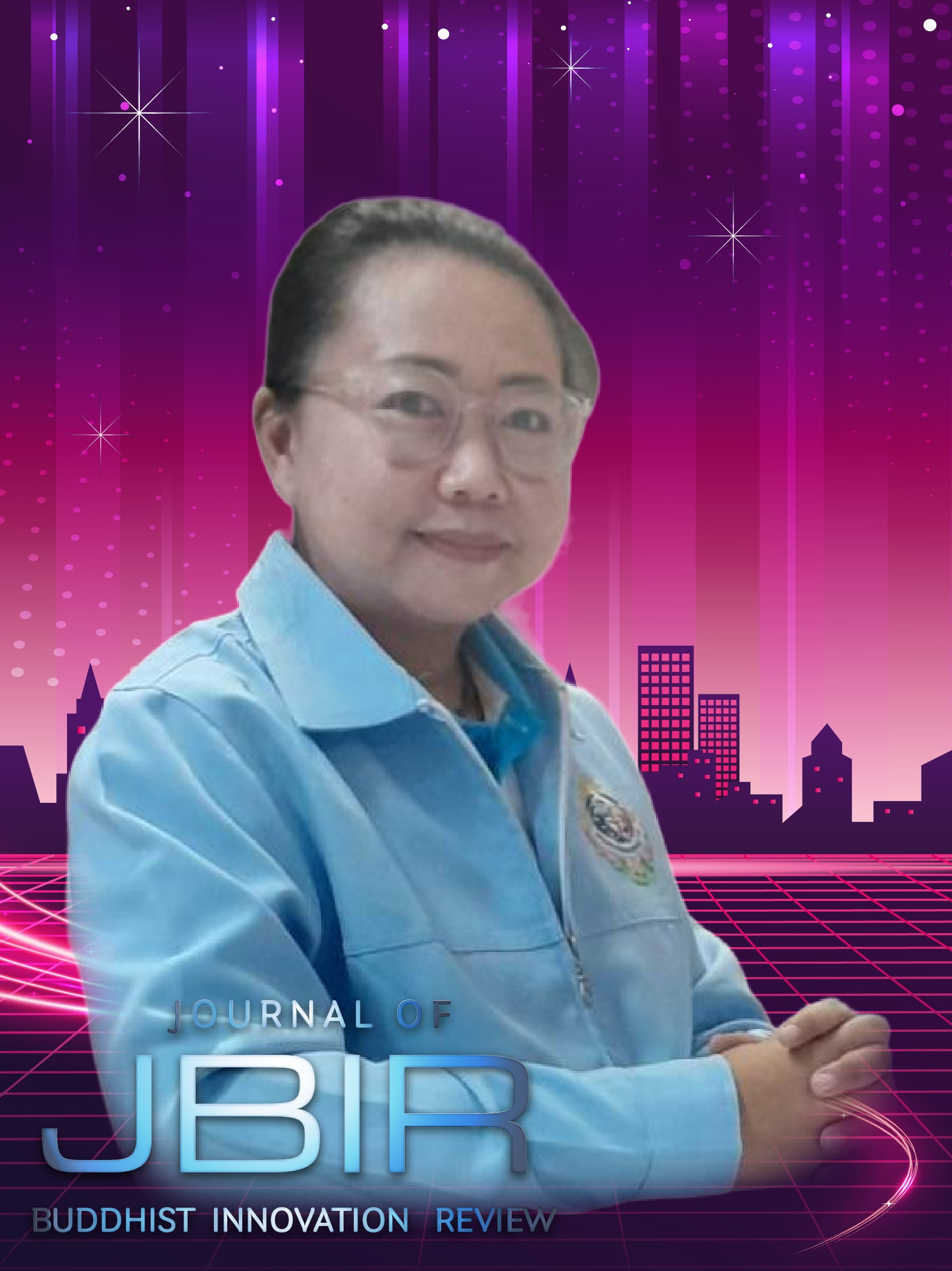The Development of Community Leaders to Promote a Peaceful Community Based on ‘Bowon’ Power According to the Buddhist Peaceful Means: A Case Study of Non Sila 2 Community, Ban Non Sila, Non Sila Subdistrict, Non Sila District, Khon Kaen Province
Main Article Content
Abstract
The study entitled “The Development of Community Leaders to Promote a Peaceful Community Based on ‘Bowon’ Power According to the Buddhist Peaceful Means: A Case Study of Non Sila 2 Community, Ban Non Sila, Non Sila Subdistrict, Non Sila District, Khon Kaen Province” was based on the Ariyasacca model (the Four Noble Truths) in accordance with the action research method under the 9-step research framework. The research instruments included purposive in-depth interviews and participant observation of 20 key informants. The data obtained were analyzed using descriptive data analysis. The study consisted of the following objectives: 1) to examine the context, problems, and needs of community leader development to promote a peaceful community for the Non Sila 2 Community according to modern science; 2) explore the Buddhadhamma conducive to community leader development to promote a peaceful community; and 3) to develop and present the process of developing community leaders to promote a peaceful community based on ‘Bowon’ power according to the Buddhist peaceful means for Non Sila 2 Community, Ban Non Sila, Non Sila Subdistrict, Non Sila District, Khon Kaen Province.
From the study, the following results were found:
In-depth interviews with key informants about the context, problems, and needs of Non Sila 2 Community revealed several problems, including a lack of awareness of their own role and self-development, as well as a lack of understanding of the ‘Bowon’ principles. In terms of applying the philosophy of sufficiency economy for self-development, the community lacks moral development, which affects the effectiveness of community development.
The Buddhadhamma, which is Saṅgahavatthu (four bases of social solidarity), has been used to develop community leaders so that model community leaders can have the following four qualities: (1) Volunteers should be those who are willing to sacrifice for others and help them, including money, physical strength, knowledge and experience to help the community (dāna); (2) Communicators should provide clear and relevant information, be a good listener with pleasant language, and speak only useful and true things in a timely manner (piyavācā); (3) Service workers should cultivate their public mind to help others according to their abilities, to benefit public work, to take care of things that are of public interest, to behave modestly and kindly (atthacariyā); and (4) Mediators should behave themselves properly in all circumstances, be impartial and create solidarity, with the ability to mediate in a credible manner (samānattatā).
The process of developing community leaders to promote a peaceful community based on ‘Bowon’ power according to the Buddhist peaceful means consists of four steps as follows: (1) To develop the leadership skills of community leaders by training model community leaders to understand the philosophy of sufficiency economy and use it as a guideline for self-development. This should be combined with Saṅgahavatthu (four bases of social solidarity), leading to four qualities, namely volunteer, communicator, service worker, and mediator, in order to become model community leaders; (2) Organizational development achieved through the training of model community leaders who will collaborate in the implementation of the project, with leaders with strengths in each area being responsible for the project. This will lead to the development of themselves and the organization; and (3) The enhancement of peaceful communities, in which the model community leaders can develop their communities in four aspects, namely (3.1) the physical aspect, where the community is clean, waste separation in the community, and a more beautiful landscape in the community, (3.2) the mental aspect, where mindfulness is promoted and the local tradition is preserved, (3.3) the behavioral aspect, where there is less crime and community rules are respected, and (3.4) the intellectual aspect, when there is a collective effort to create a plan for community development by the community, people in the community are supported to learn continuously, and conflicts are reduced.
As a result, community leaders can learn and develop into model community leaders, which will lead to more love and solidarity in the community, a peaceful community, less conflict, and cooperation in the development of the community.
Article Details

This work is licensed under a Creative Commons Attribution-NonCommercial-NoDerivatives 4.0 International License.
เรื่องลิขสิทธิ์/เป็นความคิดเห็นของผู้เขียน
References
Books:
Mahachulalongkornrajavidyalaya. (1996). Thai Tripitaka. Bangkok: MCU Press.
Department of Community Development Ministry of Interior. (2004). Systems and methods for community development work. Bangkok: LT Place Company Limited.
Somdet Phra Buddhakosajarn (P.O. Payutto). (2018). Dictionary of Science Glossary edition. 31st printing. Bangkok: Sahathamik Company Limited.
Subcommittee on Sufficiency Economy (2007). Driving Office of the National Economic and Social Development Board, applying the principles of Sufficiency Economy.
Ministry of Culture. Guidelines for strengthening "Boworn" for "stability, prosperity, and sustainability" of moral communities embracing the philosophy of Sufficiency Economy.
Phra Phromkhunaporn (P.A. Payutto). (2014). Expanded Buddhamma Edition. 39th.Bangkok: Mahachulalongkornrajavidyalaya University Press.
Kamonrat Rakborisuttisorn. (2022). “People's opinions on the sustainable development of livable cities in Saen Suk Municipality, Mueang District, Chonburi Province”. Master of Public Administration Thesis. General Administration. Graduate School: Burapha University.
Phra Maha Somsak Theerawaso. (2022). The process of developing urban and rural communities towards sustainability in Chiang Kham District. Phayao Province. Master of Buddhist. thesis Field of study: Social development. Graduate School:
Mahachulalongkornrajavidyalaya University.


